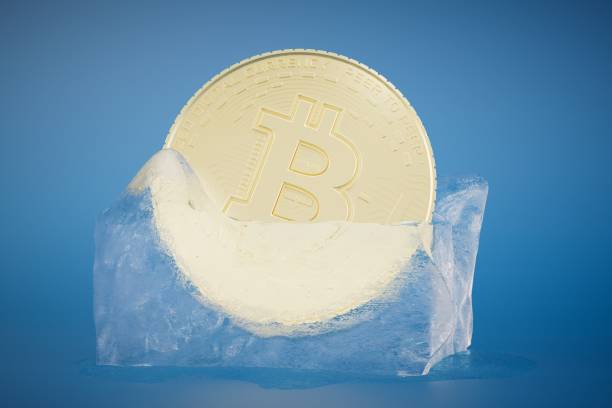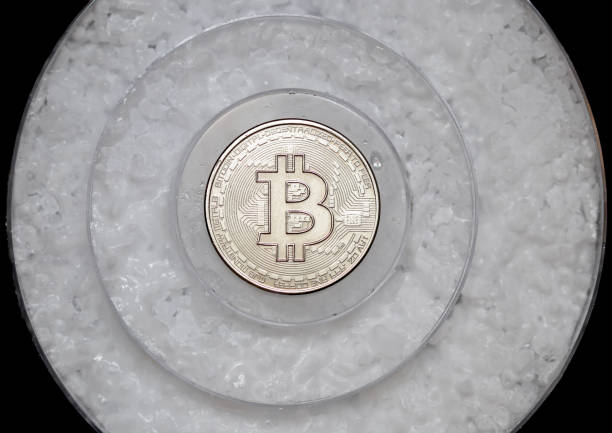Frozen funds normally mean access to such funds has been restricted or temporarily stopped.
Many factors, such as security precautions, technological errors, investigations, disagreements, and regulatory compliance, can result in such circumstances. So, can a crypto exchange freeze your account?
In case exchanges or financial institutions suspect any fraudulent activity or money laundering related to the account, they might freeze funds. Moreover, freezing may happen as a preventive measure in reaction to potential security lapses or any unwanted access attempts.
Funds may also get frozen during disagreements or continuing investigations until the issue is resolved, assuring a just outcome for all parties concerned. Temporary freezes resulting from technical issues with the blockchain or exchange infrastructure can also impact the availability of funds. For example, in 2022, Binance suspended withdrawals of Ethereum and ERC-20 tokens because of the Merge.
When users experience frozen funds, they need to contact the relevant platforms or service providers instantly to identify the issue and find a viable solution. To resolve and maybe unfreeze the funds, they have to adhere to the specific guidelines and instructions offered by the platform under consideration.
Does The Immutability Principle Apply To Frozen Crypto Assets?
From the point of view of frozen assets, immutability in blockchain works as an unyielding vault, protecting and preserving value without the potential for alteration.
The concept is important for financial applications that involve tokenized assets or cryptos. It levels the playing field by guaranteeing that an asset’s value and ownership remain transparent and unchangeable once it gets frozen or stored on the blockchain.
Similar to getting locked in ice, the condition cannot be changed and it guarantees the durability and integrity of assets stored on the blockchain. The principle offers protection against unauthorized alterations or tampering with frozen assets. Moreover, immutability protects the transaction history by maintaining its accuracy and eliminating dishonest manipulations.
Related:Financial Censorship is Here…Can PriFi Save the Day?
Circumstances That Result In Crypto Freezing
Crypto freezing can happen under different circumstances powered by legal and regulatory infrastructures, guaranteeing compliance and addressing particular scenarios where freezing becomes important.
Legal And Compliance Investigations
Assets linked to cryptos may be frozen by regulatory entities looking into cases of money laundering, fraud, or terrorism financing. The action complies with Anti-Money Laundering (AML) and Know Your Customer (KYC) regulations, allowing law enforcement to stop transactions and investigate any suspicious activity.
For example, the Financial Action Task Force (FATF) offers guidelines to regulate cryptos and prevent illegal activities, including freezing assets to help investigations.
Related:Olta Andoni of Enclave Markets Talks to us about Money Laundering -Digital Assets
Court Orders And Judicial Proceedings
Orders to freeze crypto assets might be issued by courts in disagreements, litigation, or criminal cases. The freeze stops assets from getting transferred or sold until the court cases are concluded or viable decisions are made.
Regulatory Enforcement Actions
Regulatory bodies, such as tax authorities or financial regulators, have the authority to immobilize assets as a component of enforcement measures against individuals or companies that violate financial regulations. This measure is implemented to guarantee compliance and facilitate thorough investigations when necessary.
Security Measures By Wallet Providers And Crypto Exchanges
Crypto exchanges and wallet providers might freeze assets as a precaution against unauthorized access attempts, security breaches, or any other suspicious activities. Apart from safeguarding the user funds, it also prevents potential losses because of security flaws.
Stablecoin Depegging
Platforms might freeze transactions that involve stablecoin when it loses its peg because of its underlying asset, for example, the US dollar, to stop extensive destabilization or evaluate the situation.
How Can Cryptos Be Frozen On A Blockchain?
There are multiple mechanisms used to freeze cryptos, including centralized exchanges and wallets, legal and regulatory interventions, and smart contracts.
Centralized Exchanges And Wallets
Centralized platforms have the authority to freeze assets under their control. Accounts or transactions can be suspended because of security concerns, legal needs, or compliance issues. This strategy gives the platform centralized control over user funds, which makes it possible to rapidly freeze them. But, it also raises questions about central authority and trust in the crypto space.
Legal And Regulatory Interventions
Legislators can enact limitations or issue legal directives compelling financial institutions or exchanges to suspend a particular cryptocurrency. This strategy ensures compliance with jurisdictional laws, as it authorizes asset freezes with legal support and aligns with established legal frameworks.
For instance, China has often cracked down on crypto mining and trading, resulting in considerable disruptions in these activities within its borders.
Smart Contracts
Smart Contracts on blockchain networks can help facilitate freezing mechanisms via code. A smart contract’s programmed conditions might include provisions that help freeze assets in response to predetermined scenarios, such as non-compliance or dispute resolution. With the decentralized strategy, freezing is automated based on present criteria, which negates the need for any intervention from a centralized regulator.
For instance, some protocols in decentralized finance (DeFi) might include smart contracts that authorize asset freezing in case various conditions are satisfied, such as loan default or contract violation. When implementing freezes, smart contracts guarantee decentralization, automation, and transparency.
Ethical Issues About Freezing Assets In A Decentralized Ecosystem
Freezing assets in decentralized systems result in ethical questions due to the conflict between control and autonomy.
Balancing the need to safeguard against illegal activities while preserving decentralization and individual autonomy remains a crucial ethical challenge in the management of asset freezes within decentralized networks.
Freezing assets may be necessary to halt illicit activities or breaches, but implementing such measures in a decentralized system raises ethical concerns related to justice and governance. An ethical dilemma arises as a small group or entity could potentially exploit the authority to freeze assets, thereby compromising the principles of decentralization and concentrating power in a few hands.
Moreover, using smart contracts to freeze assets might not offer the flexibility needed for making thoughtful decisions under challenging circumstances, which might result in unfair and irreversible actions. Also, the irreversibility of these blockchain transactions causes moral issues since it is challenging to correct errors or deal with unexpected consequences after the assets get frozen.
Technical Challenges In Implementing Freezes Without Threatening Decentralization
Maintaining the decentralized nature of a blockchain network, which insists on autonomy and peer-to-peer control, poses challenges when trying to enforce freezes without compromising the principles.
One issue is that blockchain data is immutable. Once a transaction gets recorded, it becomes hard to change or freeze without risking the system’s integrity. Although smart contracts are often important for freezes, they cannot continuously adjust to changing conditions or legal mandates without potentially creating new centralized control points.
Moreover, it is hard to coordinate consensus within a decentralized network to freeze assets in a manner that is transparent, timely, and massively accepted. To resolve the technical challenges, a careful balance has to be struck between upholding decentralized ideals and creating networks that can efficiently and compliantly implement the freezes.
Technological advancements in smart contract adaptability, blockchain governance, and consensus mechanisms are important in overcoming the obstacles and maintaining decentralization.










